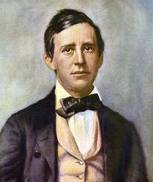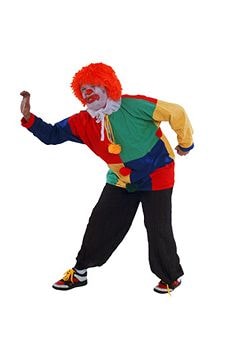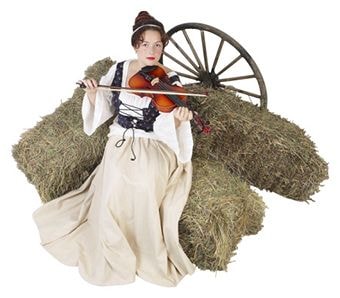استفان فاستر؟ آهنگساز آمریکایی
فایل داستانهای آموزشی زبان انگلیسی
Stephen Foster? American Songwriter
Before radio and television, movies and recordings, entertainment was often a family or community matter. Someone in the family could play a musical instrument, or a neighbourhood musician would play for small gatherings. In addition, there would be travelling groups of musicians, actors and clowns who would go from town to town. In nineteenth century United States, one of the most popular forms of entertainment was the minstrel show. Black slavery was still permitted in the southern states until 1865. Even after that date, the lives of many blacks working on large farms or plantations did not change much. They did hard physical labour in the fields, had little control over their lives, and very little time to relax with their friends.
Foster, who was born in 1826, made this situation the background for many of his songs. White musicians would try to imagine the feelings of black men and women working on the s. They would write songs in the dialect or speech patterns that they thought black slaves used. In these songs, the black people would be talking about their hardships, falling in love, playing music and dancing, and finally growing old and dying. White performers would blacken their faces and sing these songs to white audiences. They would play musical instruments, like the banjo, a small four-stringed guitar, which black people played often.
As a small boy, Stephen Foster had sometimes been taken to a black church by his family’s black servant, Olivia Pise. Here he first heard the melodies that inspired his own songs. Only a couple of Foster’s songs are based directly on “Negro spirituals;” but many of his songs have the natural simplicity and emotional power of folk songs. The youngest member of a large family, Foster showed his musical talent at an early age. He played the flute, violin, and piano. Growing up in an energetic business family, Stephen was expected to become a businessman. And, for a while, he worked as a bookkeeper. All his spare time, however, was spent writing songs. Foster attended minstrel shows and tried to get the performers to sing his songs. Sometimes the performers would steal his songs and publish them under their own names. Copyright laws were weak and rarely enforced, so some music publishers would just go ahead and publish a song without paying the songwriter.
Since Foster hoped to make a living as a songwriter, this was a problem. Foster’s first hit song was “Oh! Susanna” published in 1848. It became popular with the thousands of men from all over the United States who were heading west to the Californian gold-rush of 1849. Unfortunately, as an unknown song writer, Foster received no money from his early songs. He seems to have given them outright to the music publishers, just to establish his reputation. Foster’s name, however, was soon widely known, and in 1849 he was able to afford to give up bookkeeping, and marry the daughter of a Pittsburgh physician. During the next five years, he earned a moderately good income from songwriting.
In 1851, a daughter Marion was born. Foster wrote many of his best-known songs at this time – “Old Folks at Home” in 1851; “My Old Kentucky Home” in 1853, and “Jeanie With the Light Brown Hair” in 1854. Difficulties in Foster’s marriage began fairly soon. These may have been partly due to his strange work habits. He spent days locked in his room working on his songs. Then he would rush out with his materials to the local music store, presumably to test out the songs on his friends. He also became more and more addicted to alcohol. Eventually, his wife and daughter left him. Foster died alone in a rooming house in 1864. Immigrants to the United States brought their traditional folk songs with them. However, there were very few typically American songs. Foster provided many songs that expressed the life of nineteenth century U.S.A. His songs were easy to sing, and were popular with nearly everyone. In a sense, Foster helped to create roots for American popular music.
Clown
Source 1
An entertainer who wears funny clothes and a large red nose and does silly things to make people laugh:
(figurative) Robert was always the class clown (= he did silly things to make the other students laugh).
Source 2
someone who wears funny clothes, a red nose, bright make-up on their face etc, and does silly things to make people laugh, especially at a circus
Source 3
A fool, jester, or comedian in an entertainment (as a play); specifically: a grotesquely dressed comedy performer in a circus
Examples of CLOWNThose big shoes make you look like a clown!
Who’s the clown standing in the middle of the road?
Those clowns at the state capital
Minstrel show
A musician or singer in the middle Ages
Plantation
Source 1
1 A large area of land, especially in a hot country, where crops such as coffee, sugar, rubber, etc. are grown
A banana plantation
Plantation workers/owners
2 A large area of land that is planted with trees to produce wood
Conifer/forestry plantations
Source 2
1 a large area of land in a hot country, where crops such as tea, cotton, and sugar are grown:
A rubber plantation
2 a large group of trees grown to produce wood
Source3
A usually large group of plants and especially trees under cultivation
Examples of PLANTATIONThe struggling plantation almost failed during the first winter
Banjo
A musical instrument like a guitar, with a round body and four or more strings, played especially in country and western music
Spiritual
Source 1
A religious song of the type sung originally by African-Americans
Source 2
A religious song usually of a deeply emotional character that was developed especially among blacks in the southern United States
OutrightSource 1
Complete and total
An outright ban/rejection/victory
She was the outright winner.
No one party is expected to gain an outright majority.
Source 2
1 clear and direct: an outright refusal
An outright attack on his actions
2 complete and total: an outright victory
An outright ban on the sale of tobacco
Source 3
Being completely or exactly what is stated
An outright lie
I was surprised by their outright rejection of the idea
Synonyms: all-out, arrant, blank, blooming [chiefly British], categorical , clean, complete, consummate, crashing, damn, damned, dead, deadly, definite, downright, dreadful, fair, flat, flat-out, out-and-out, absolute, perfect, plumb, profound, pure, rank, sheer, simple, straight-out, thorough, thoroughgoing, total, unadulterated, unalloyed, unconditional, unmitigated, unqualified, utter, very
ModeratelySource 1
To an average extent; fairly but not very
Synonym: reasonably
A moderately successful career
She only did moderately well in the exam.
Cook in a moderately hot oven.
Source 2
In a way which is not extreme or stays within reasonable limits:
He drinks moderately.
Source 3
Tending toward the mean or average amount or dimension
Examples of MODERATEHer doctor recommended moderate exercise.
There were moderate levels of chemicals in the lake.
Drinking moderate amounts of coffee
Most of these medicines relieve mild to moderate pain.
A family of moderate income
A book of moderate length
The group met with only moderate success.
A writer of moderate talent
The hotel offers comfortable rooms at moderate prices.
Both moderate Democrats and moderate Republicans can agree on this new law.
Synonyms: temperate
Antonyms: immoderate, intemperate
PresumablySource 1
Used to say that you think that something is probably true
Presumably this is where the accident happened.
You’ll be taking the car, presumably?
I couldn’t concentrate, presumably because I was so tired.
Source 2
Used to say that you think something is probably true:
It’s raining, which presumably means that your football match will be cancelled.
Source 3
By reasonable assumption
Examples of PRESUMABLYPresumably he’s going on the trip for business reasons, but we have our doubts
Synonyms: evidently, ostensibly, apparently, putatively, seemingly, supposedly
Antonyms: improbably
In a senseSource 1
In one way
Source 2
A way in which something can be true or real
In a sense/in one sense/in some senses etc (=in one way, in some ways etc) What he says is right in a sense.
The hotel was in no sense (=not at all) comfortable.
George was a big man in every sense of the word (=in every way).
This is true in a general sense.
Communication, in any real sense (=of any real kind), was extremely limited.





